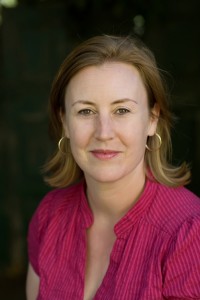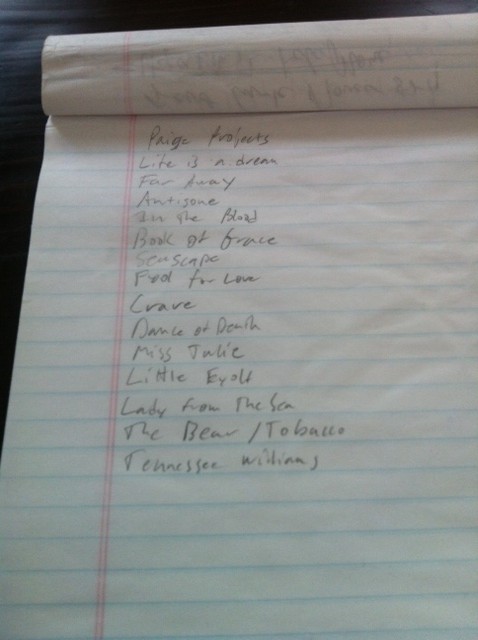A Word from the Director: Paige Rogers on Finding Antigone
 About two years ago, I was talking with my husband, Cutting Ball Artistic Director, Rob Melrose, about the fact that I wished I could go back to graduate school and get an MFA in directing but having a job and two kids really got in the way of this happening so, I asked him to step in as “my MFA teacher”. He wrote out a list of plays that he would suggest to directing graduate students, pieces that would present a steep learning curve as well as require a lot of thought and discussion. I spent the next month or so combing over each play on his list. Sometimes I would say “Rob, do we own this one?” only to find that we had multiple copies/translations of each and every play on his list.
About two years ago, I was talking with my husband, Cutting Ball Artistic Director, Rob Melrose, about the fact that I wished I could go back to graduate school and get an MFA in directing but having a job and two kids really got in the way of this happening so, I asked him to step in as “my MFA teacher”. He wrote out a list of plays that he would suggest to directing graduate students, pieces that would present a steep learning curve as well as require a lot of thought and discussion. I spent the next month or so combing over each play on his list. Sometimes I would say “Rob, do we own this one?” only to find that we had multiple copies/translations of each and every play on his list.
By the end of two weeks, I was leaning toward Antigone and Rob smiled when I told him. He always teases me about liking plays about families. I think that Chekhov’s Three Sisters is one of the best plays in the world because it so closely examines the break down of one particular familial system. It’s true really, I adore plays about families. One of my favorite modern plays is August, Osage County. What struck me so strongly about Antigone was this idea that Oedipus and Jocasta had four children together, Eteocles, Antigone, Polyneices and Ismene, four siblings who played and fought and grew up together. After the truth is discovered that they are in fact mother and son, Jocasta kills herself and Oedipus blinds himself. The play Antigone begins well after the death of Oedipus, and it is the four siblings, royal in birth and shamed by their parentage, who seemed so clear and strong to me. The play begins just twenty-four hours after the two brothers kill one another and the sisters, used to sharing the gross humiliation of their parentage, are the only ones left who can claim that their father was also their brother. The two other people on earth who understood this fact on a cellular and societal level have killed each other just hours before. The bond that the siblings shared paired with what is happening the minute the play opens sealed the deal for me.
I read many translations and adaptations including those by Anne Carson (which Shotgun Players will produce in 2015) and Jean Anouilh, finally settling on Sophocles’ original. It took a half a year of reading more translations (even some that we did we not have in our library!) to determine that I wanted to work with a playwright on a new translation.
After directing Tontlawald in 2012, I received an email from Daniel Sullivan, a playwright who was a friend of a friend, telling me how much he had loved the production and how he had seen it multiple times. It was a very long email and, to be honest, I did not finish reading it the day I received it because my kids had just gotten out of school and I was focused on summer and home life. I quickly wrote him back, thanking him for his support of Tontlawald and said that I would get back to him.
When I started working on The Antigone Project, I was determined to create a team of people working on Antigone who truly wanted to be there and were excited about the long process. Daniel and I had many long talks (and long emails) about the play, the music, the language, the time, the chorus, the cast and the possibility of working together. By the time our production of Antigone opens in February 2015, Daniel will have been working for over a year on his new translation of Sophocles’ play from the ancient Greek.
-Paige Rogers
July 14, 2014
Visit The Antigone Project Kickstarter here: http://kck.st/1mCecg4
Rob's list of plays (authentic):
